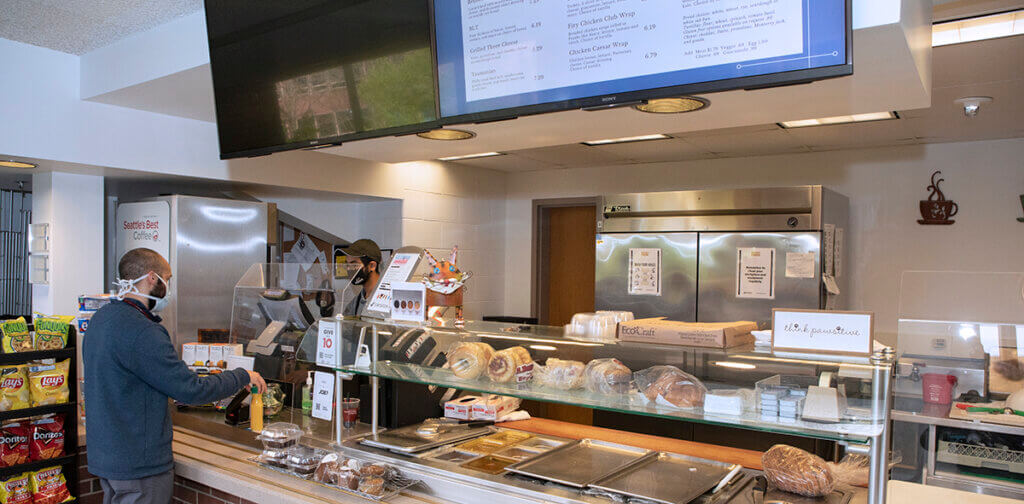
A Purdue University College of Veterinary Medicine mainstay that has helped students, staff and faculty make it through the pandemic-induced challenges of the past academic year, will stay open through the summer. The café won’t skip a beat as the spring semester gives way to the summer months, continuing the normal hours of 7:30 a.m. to 2:00 p.m., Monday-Friday, next week and on through the summer term.
“I would like to thank everyone who supported us in the past year,” said Tammie Hill, who manages the day-to-day operations of the café for Aramark, which operates a total of 35 dining locations on the Purdue campus. “The level of customer traffic we had this year at the Continuum Café demonstrated that we are meeting a need, which enabled us to qualify to stay open for the summer,” Tammie explained.
The café also has added some fun new menu items just in time for the summer season – Blue Bunny ice cream treats! They will come in several flavors and will complement other treats on the menu, such as muffins, cookies, and brownies. The café menu also will continue to offer breakfast and lunch sandwiches along with fruit and various snack items, from chips to energy bars. Tammie said the most popular items include the Philly Steak and Tasmanian steak sandwiches, as well as the bagel breakfast sandwiches that are served all day.
In addition to thanking her Lynn Hall customers, Tammie also praised her team of café servers, anchored by three Purdue students who helped her carry the load of serving patrons throughout the spring while following all the special protocols necessitated by the pandemic. Along with limiting customer seating, the café made menu and procedural adjustments that were implemented last fall to provide for everyone’s health and safety. Those changes included requirements for employees and customers to wear masks, and for employees to have their temperatures taken before clocking-in and to wash their hands and sanitize their workstations every 30 minutes during their shifts. As for menu changes, food items have been served in a grab-n-go format, and self-serve items like soup were discontinued due to health and safety requirements. Fresh brewed coffee remains available, but is served by the staff from behind the counter.
A big thank you to Tammie and her team for providing excellent service to the PVM family during this past academic year when the café served as a particularly important “bright spot” and touch of normalcy in the midst of all of the challenges related to the pandemic. And congratulations to the café and its customers for achieving a level of success that made it possible to keep the café in business this summer!
